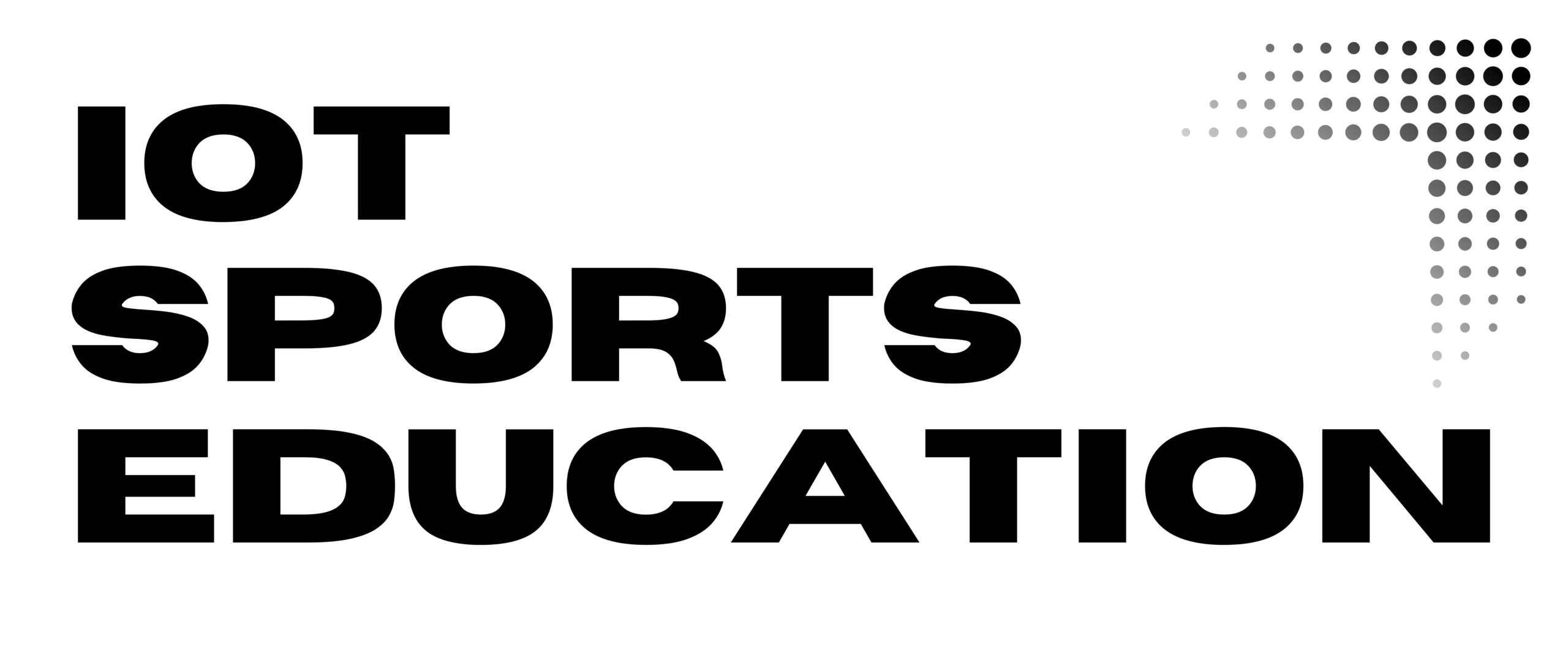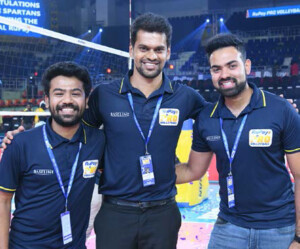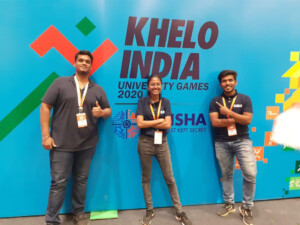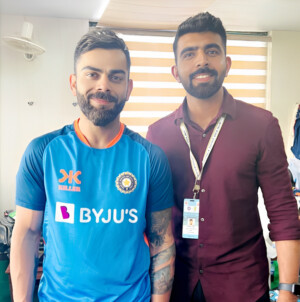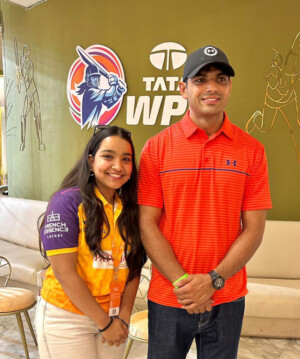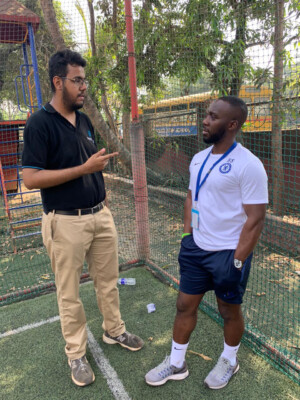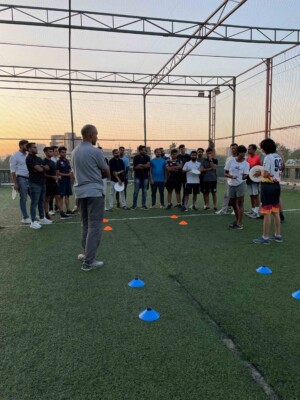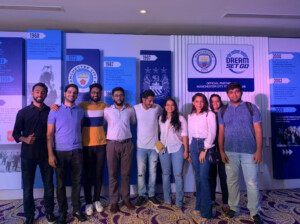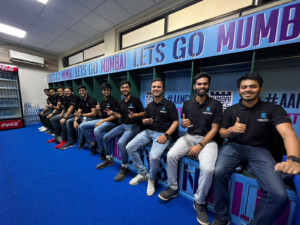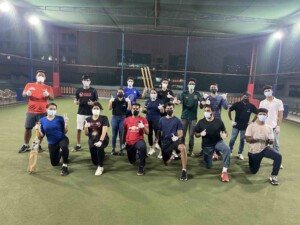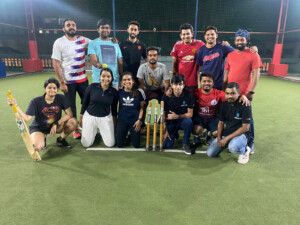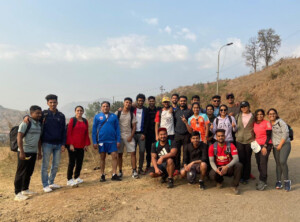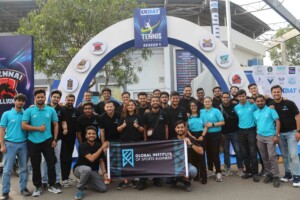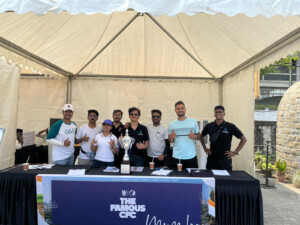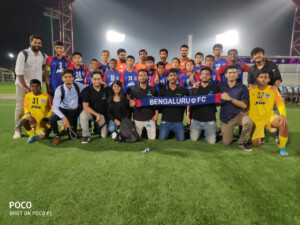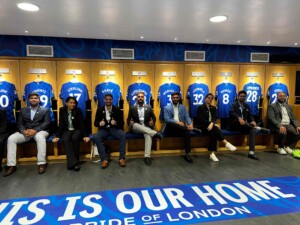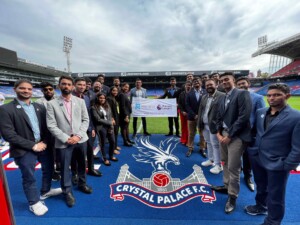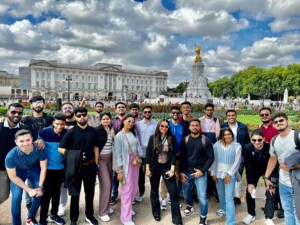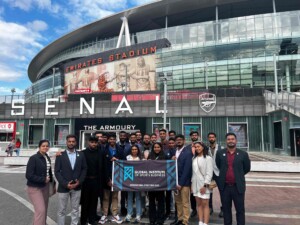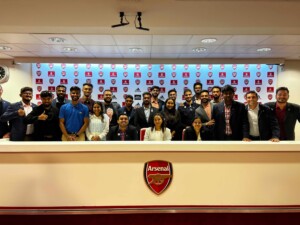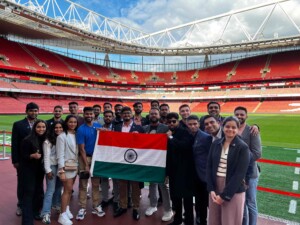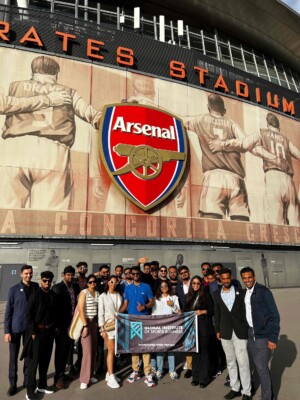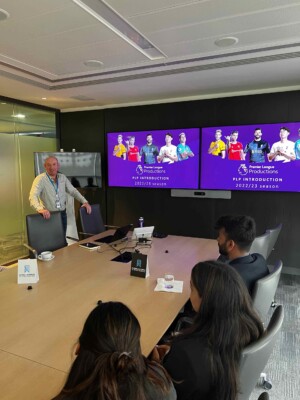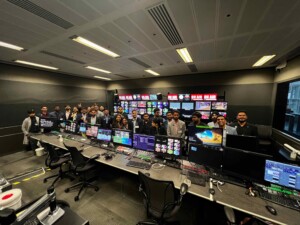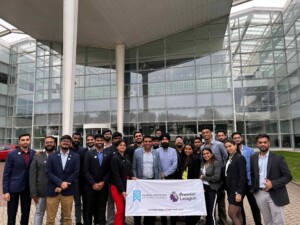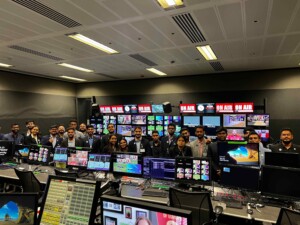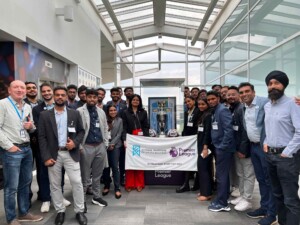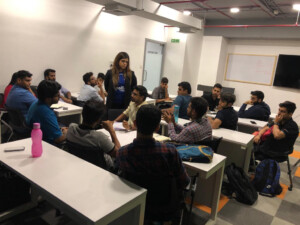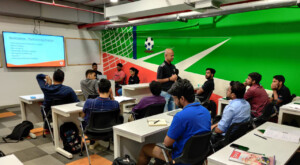The demand for well-trained and active people in Indian sports management has never been higher. As the sector expands and diversifies, organisations such as the Global Institute of Sports Business Global Institute of Sports Business (GISB) play an important role in developing the next generation of leaders who will influence the future of sports management. With a strong curriculum, industry-focused training, and a network of notable alumni, Global Institute of Sports Business (GISB) is a shining example for aspiring sports management professionals. This blog explores how Global Institute of Sports Business (GISB) prepares its students to thrive in the highly competitive field of sports management.
Rising Demand for Indian Sports Management
The Indian sports management environment has grown at an unparalleled rate, thanks to the success of major leagues like the Indian Premier League (IPL), Pro Kabaddi League (PKL), and Indian Super League (ISL). These platforms have not only popularised their respective sports, but also created numerous opportunities in sports business management, marketing, and operations. This expansion necessitates the development of a new breed of experts capable of handling the complexity of the sports sector on a local and global scale.
Global Institute of Sports Business (GISB) Comprehensive Educational Approach
Global Institute of Sports Business (GISB) has a diverse approach to education in sports management, integrating academic rigour with practical, hands-on experience. This comprehensive approach guarantees that students are not only academically excellent but also industry-ready from the start.
Innovative Programmes and Curriculum: Global Institute of Sports Business (GISB) provides a variety of programmes that cover the scope of Indian sports management. Their flagship Postgraduate Programme in Sports Management is a one-year intense programme that covers topics such as sports marketing, digital revolution in sports, sports operations, and sponsorship management. This programme is meticulously designed to provide students with a comprehensive view of the industry, ensuring they are well-prepared for the diverse roles available in sports management.
Expert Faculty and Industry Leaders: Global Institute of Sports Business (GISB) faculty consists of seasoned professionals and sports industry experts who bring a wealth of knowledge and practical insights to the classroom. This includes industry veterans such as Neel Shah, Head of Sports Education and New Business, who has vast expertise in the global sports sector. Their real-world experience and strategic insights offer students a distinct perspective on the challenges and opportunities in Indian sports management.
Hands-On Experience and Industry Exposure: Global Institute of Sports Business (GISB) emphasises practical learning through internships, live projects, and industry interactions. This approach is exemplified by their collaboration with top sports organisations and leagues, which allows students to engage directly with the industry and apply their learning in real-world scenarios. This hands-on experience is crucial for understanding the nuances of Indian sports management and preparing
Success Stories: Global Institute of Sports Business (GISB) Alumni Making an Impact
Graduates of Global Institute of Sports Business (GISB) are making tremendous progress in the Indian sports management industry. They collaborate with top-tier organisations and leagues, support major sporting events, and drive innovative sports business initiatives. Alumni have secured positions as sports marketing managers, event coordinators, and business development executives, demonstrating the variety of opportunities available in the industry.
Dwaipayan Ghosh: As a Marketing Executive at Mumbai City FC, Dwaipayan leverages his experience in sports marketing and fan interaction to strengthen the club’s brand and reach. His responsibilities include developing and implementing marketing initiatives that engage with fans and sponsors equally.
Arjun Mehra: Arjun now works as a Senior Marketing Executive at Sony Sports Network, where he uses his extensive knowledge of sports marketing to increase audience engagement and sponsor partnerships for one of India’s top sports broadcasters. His work helps to shape the network’s sports programming strategy and marketing positioning.
Tejaswini Alkute: Tejaswini is the Manager of Products & Projects at NODWIN Gaming, a leader in India’s esports and gaming industries. Her responsibilities include managing critical projects and product lines, and she plays an important role in fostering development and innovation in this rapidly developing industry.
These graduates represent the many career options accessible in sports management and demonstrate the influence of Global Institute of Sports Business (GISB) training and education on their professional experiences.
Career Opportunities in Indian Sports Management
The field of Indian sports management is wide and diverse, with several employment opportunities. Global Institute of Sports Business (GISB) educates students for a variety of professions within the sector, including:
Sports Marketing and Sponsorship: Professionals in this field promote sporting events, teams, and players. They create marketing plans, handle sponsorship agreements, and increase brand involvement. The Global Institute of Sports Business (GISB) programme provides thorough instruction in these areas, equipping students to flourish in these dynamic professions.
Event Management and Operations: This includes the preparation and implementation of sporting events, from logistics and coordination to on-site operations. Global Institute of Sports Business (GISB) provides students with the abilities required to effectively manage large-scale sports events, which is an important part of Indian sports management.
Athlete Management and Representation: This role’s major tasks include managing athletes’ careers, negotiating contracts, and handling public relations. Global Institute of Sports Business (GISB) emphasis on practical experience helps students understand the complexities of athlete management.
Digital Transformation in Sports: As technology becomes increasingly important, people with expertise in digital media, analytics, and online interaction are in great demand. Global Institute of Sports Business (GISB) programmes incorporate instruction in the most recent digital developments, guaranteeing that students can effectively use technology in sports administration.
Sports Business and Administration: This refers to the whole management of sports organisations, including strategic planning, financial management, and governance. Global Institute of Sports Business (GISB) educates students to be leaders in sports organisations, hence promoting industry growth and innovation.
Strategic Partnerships and Industry Engagement
Global Institute of Sports Business (GISB) strong network of industry collaborations is a key component of the school’s effectiveness in educating students for careers in sports. These agreements give students unmatched experience and opportunity, bridging the gap between academic education and practical practice in Indian sports management.
Collaboration with Leading Indian Sports Organizations
Global Institute of Sports Business (GISB) has forged strategic agreements with some of the most prominent sports organisations within India. These partnerships include a diverse array of entities such as the Association of Indian Football Coaches (AIFC), MultiFit, Rayo Racing, She Kicks Football Academy, Game Changer Law Advisors, Baseline, Words Work Communication Consulting, Sportskeeda, Proem Sports, The Bridge, IR Esports, Indi Karting, ITmagia Solutions, Sports Interactive, Marwah Sports, and Sportzworkz. Through these collaborations, Global Institute of Sports Business (GISB) students have the opportunity to engage in real-world projects and gain hands-on experience across various facets of Indian sports management. Whether it’s working with AIFC on coaching education, collaborating with Sportskeeda on sports content creation, or managing events with Indi Karting, these partnerships provide a rich, practical learning environment that is crucial for developing industry-ready professionals.
Collaboration with International Leading Sports Organizations
In addition to its strong domestic partnerships, Global Institute of Sports Business (GISB) has established significant relationships with leading international sports organisations, enhancing the global perspective of its programs. Notable collaborations include those with the Premier League, SRI (Sports Recruitment International), Fanisko, SD Eibar, AHK (German-Indian Chamber of Commerce), Primitive, and Sports Pro Asia. These partnerships extend Global Institute of Sports Business (GISB) reach into the global sports industry, offering students unique insights and opportunities. Working with the Premier League provides exposure to one of the world’s most prestigious football leagues, while partnerships with entities like Fanisko and SD Eibar introduce students to the latest in sports technology and management practices on a global scale. These international engagements are vital for students aspiring to understand and excel in Indian sports management with a global outlook.
Partnerships with Global Educational Institutions
Global Institute of Sports Business (GISB) benefits from collaborations with worldwide academic institutions such as Universidad Europea and the Global Institute of Sport. These collaborations improve the educational experience by incorporating a global perspective into the Indian sports management curriculum and promoting student exchanges and collaborative programmes.
Universidad Europea: Through this cooperation, Global Institute of Sports Business (GISB) students will have access to a greater range of knowledge and skills from one of Europe’s best sports education institutes. It exposes participants to international best practices in sports management and offers opportunities for global networking.
Global Institute of Sport (GIS): The association with the worldwide Institute of Sport (GIS), which is well-known for its sports business programmes, broadens the learning options for Global Institute of Sports Business (GISB) students by combining insights from the worldwide sports sector. This relationship also provides opportunities for higher education and professional growth in sports management.
Industrial Engagement and Networking
Global Institute of Sports Business (GISB)’s network of industrial partners goes beyond official agreements. The institution frequently conducts guest lectures, workshops, and networking events with famous sports figures. These engagements give students direct contact to industry experts, creating vital relationships for their future jobs in Indian sports management.
As the area of Indian sports management expands and evolves, Global Institute of Sports Business (GISB) emerges as a pioneer in training students for successful careers in this dynamic business. Global Institute of Sports Business (GISB) provides its students with the skills and information they need to excel in diverse areas within sports management by combining comprehensive education, practical experience, and strong industry ties.
Embarking on a career in Indian sports management demands a strategic choice of education, and the Global Institute of Sports Business (GISB) emerges as a top contender. GISB’s programme is uniquely tailored to the industry’s needs, blending theoretical knowledge with practical insights gleaned from real-world scenarios. Boasting a faculty comprising seasoned professionals and experts, GISB ensures students receive mentorship from the best minds in the field. Moreover, GISB’s extensive network within the sports industry facilitates invaluable networking opportunities, paving the way for internships and collaborations with leading organisations.















